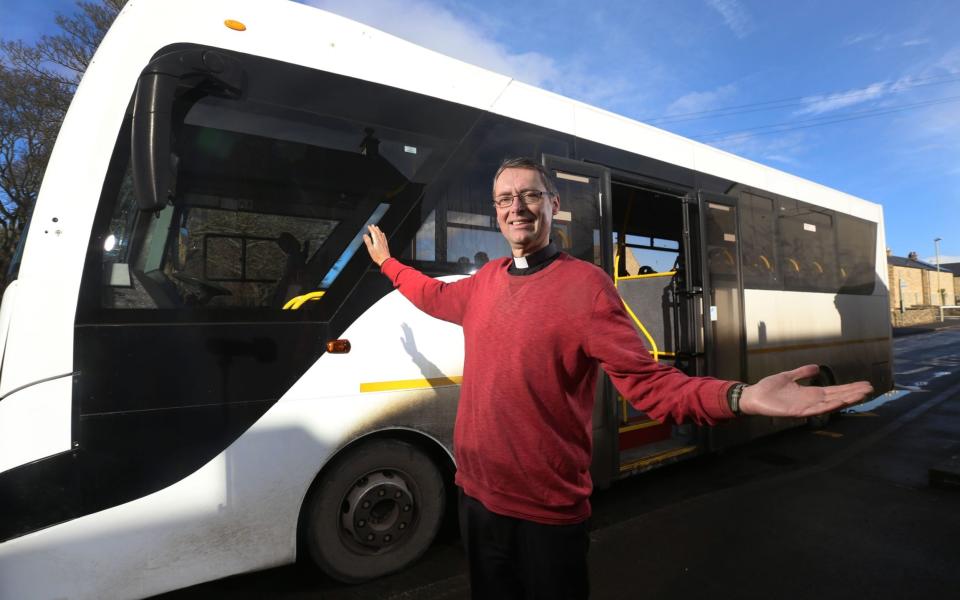Vicar drives bus to stop wheels coming off at schools in Sunak's constituency

Some English clergymen dream of having a packed and lively young congregation. One North Yorkshire vicar has achieved just that, but only after swapping church pews for a school bus.
Rev Jeff Payne volunteered in 2019 to act as the school bus driver after two rural schools merged to remain viable and needed a driver to ferry children between the sites.
After receiving his bus driving licence, he now transports about 20 to 25 children aged between four and 11 between Middleham and Spennithorne Church of England primary schools.
The schools, which are about three miles apart, are in Leyburn, a parish in Rishi Sunak’s constituency of Richmond, North Yorkshire.
“The school did advertise for a bus driver, but no one applied,” said Rev Payne.
“The church paid for my bus driver training and that was the church and the community working together. In rural areas, people know things are fragile, so they do like to work together.”

He drives the bus at the start and end of every school day, which helps working parents if they have children in different year groups who are spread across the school sites.
“It helps the children form friendships and that sort of thing,” he said. “They learn how to put on seat belts and stuff like that, and learn dexterity. I think it’s a good thing educationally.”
Spennithorne and Middleham have merged and formed a federation to help protect themselves from a decline in pupil demand due to the birth rate. The number of young families has fallen as people have bought up properties as weekend homes, Rev Payne said.
The federation has 84 pupils across both sites. Both schools were rated “good” by Ofsted during inspections at the end of last year. Inspectors found that pupils “love coming to school and attend well”. “They work hard in lessons and listen carefully to their teachers,” Ofsted said. The school sites share a headteacher and subject leaders.

Keeping rural schools open is “vital”, Rev Payne said. “If you haven’t got a school, you haven’t got a draw for young families. It just becomes a stagnant pool. Whereas if you have a school, it’s like running water.”
Between 2010 and 2019, three out of five primary schools that closed were in rural areas, forcing children to travel further for their education, according to data from the House of Commons library.
Over two decades to 2019, almost 150 rural primary schools closed.
Amanda Spielman, chief inspector of Ofsted, who visited Spennithorne and Middleham last week, told The Telegraph: “A school is a very important part of a community. There's no question that they help give villages life and can contribute to the social fabric. So it matters a lot that we have these institutions in the countryside, that they don't all get drawn into bigger villages and towns.”
She said that they also start with an advantage of being “almost like a large family, which of course makes it a great environment for children.”

 Yahoo News
Yahoo News 
